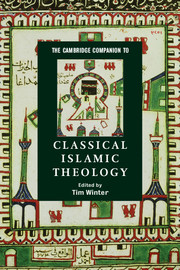12 - Theological dimensions of Islamic law
from Part II: - Themes
Published online by Cambridge University Press: 28 June 2008
Summary
INTRODUCTION
Law represented one of the earliest models of intellectual activity in Muslim culture, and traditionally lay at the core of Islamic learning. To be a “scholar” ('0ālim), whatever else it meant, was invariably to be a scholar trained in God's sacred law. Although the legal scholar did not possess the gift of prophecy, he was deemed a “successor of the Prophet”. By virtue of issuing independent legal opinions, the jurisconsult (muftī) in particular occupied a social position which in some ways was reminiscent of that of the prophetic lawgiver himself.
Because of the centrality of law in the Islamic tradition, Muslim society and culture are best accessed through it. For more than a millennium, the religious law constituted the Muslim world's most constant, characteristic and unifying feature. Mainstream Sufism was the only other dimension of Islam that enjoyed a comparable influence, but (contrary to the misperceptions of an older generation of historians) it, too, was erected on the law's foundations. Today, when many aspects of traditional Islamic society are disappearing, the religious law remains central to the Islamic consciousness, even in Muslim nations that have adopted secular legal systems.
- Type
- Chapter
- Information
- The Cambridge Companion to Classical Islamic Theology , pp. 237 - 257Publisher: Cambridge University PressPrint publication year: 2008
- 2
- Cited by



